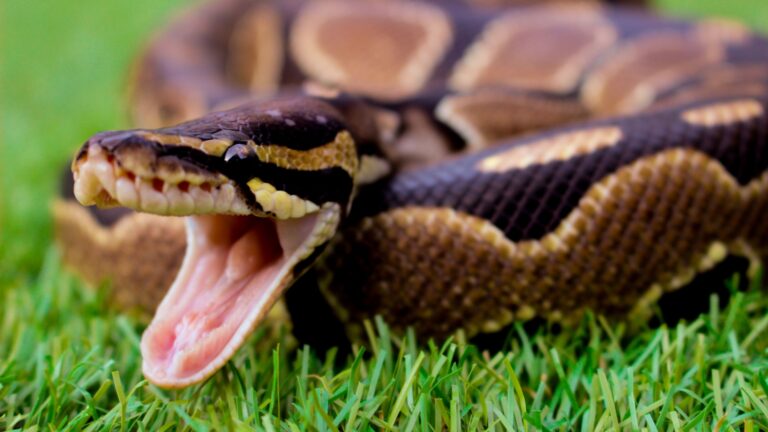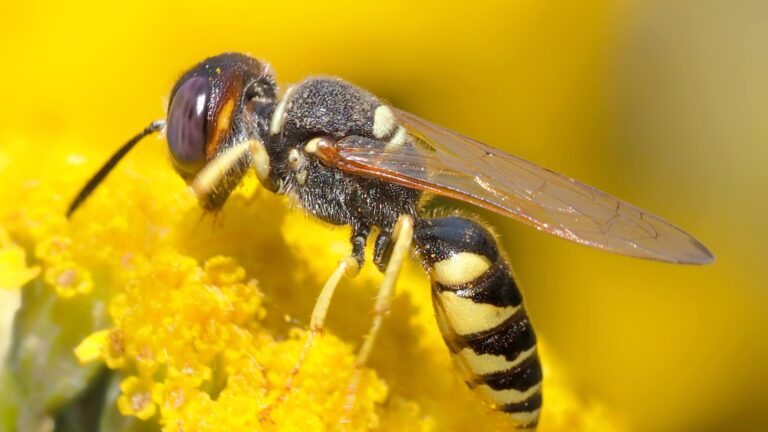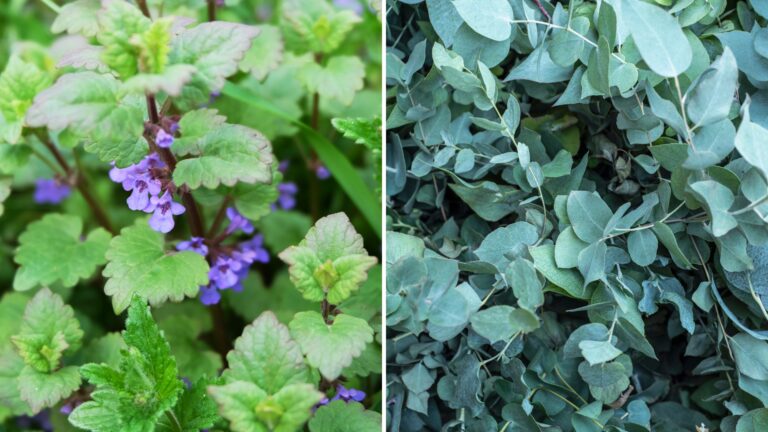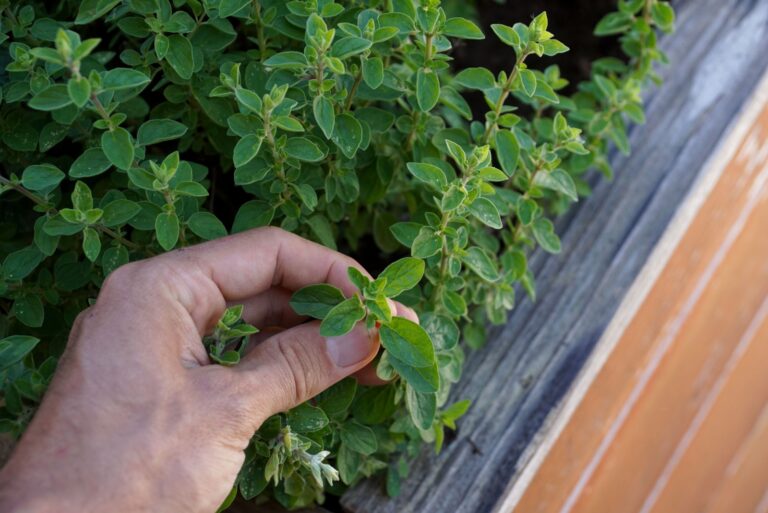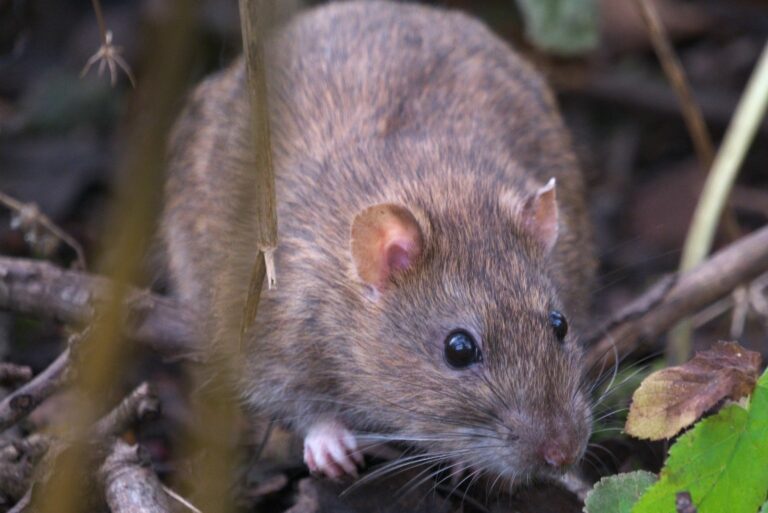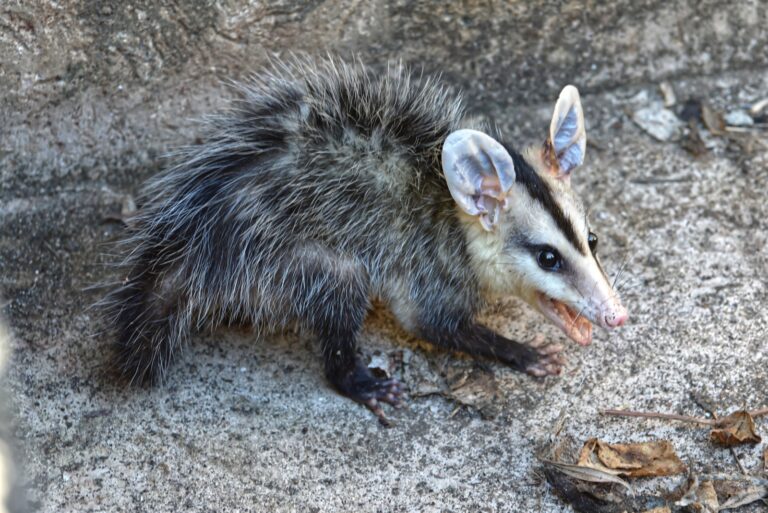18 Surprising Dangers Of Keeping Backyard Chickens (And How They Can Affect Your Garden Too)
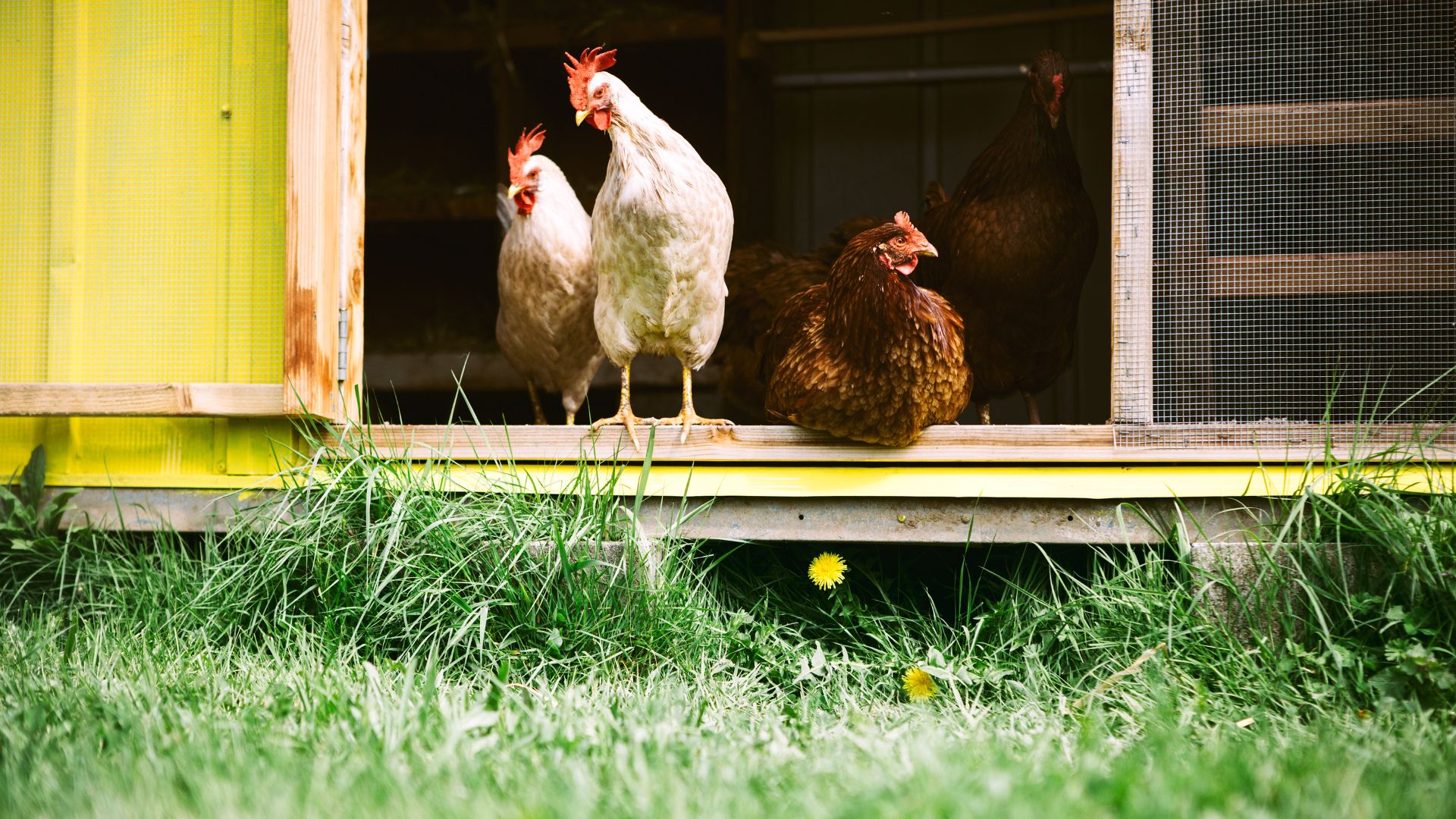
Raising backyard chickens has become a favorite for many of us—fresh eggs and those funny little personalities are hard to resist. But trust me, behind all that fluff and charm, there are some surprises waiting.
From scratched-up gardens to unexpected health worries, chickens can bring challenges you might not have thought about before they strutted into your yard.
If you’re thinking about joining the flock, it’s worth knowing what to expect so you can keep both your birds and your garden happy and healthy.
1. Aggressive Soil Scratching
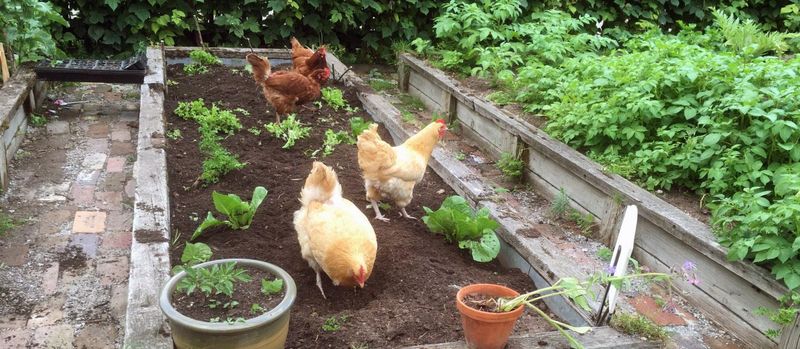
Those adorable scratching behaviors aren’t so cute when directed at your prized garden beds. Chickens instinctively dig and scratch, turning over soil at impressive speeds in search of bugs, seeds, and anything that might be tasty.
I once planted an entire bed of lettuce seedlings in the morning, only to find a chicken-made crater by afternoon. Their powerful feet can displace mulch, unearth young plants, and create divots that collect water in unwanted places.
Consider installing temporary fencing around newly planted areas or creating designated scratching zones with leaves and compost to redirect their natural behaviors away from your garden beds.
2. Predator Attraction
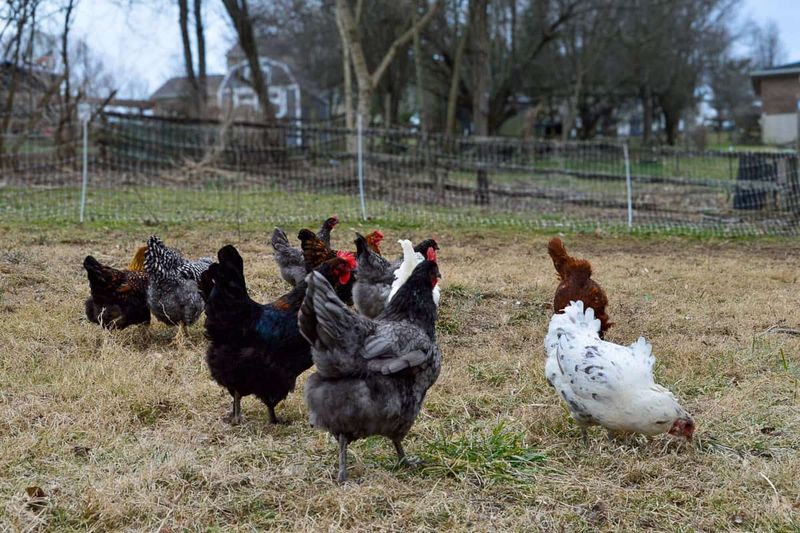
Your flock essentially becomes a buffet invitation for local predators you might not have noticed before. Raccoons, foxes, hawks, and even neighborhood dogs suddenly find your property much more interesting once chickens arrive.
After adding six hens to our backyard, we started spotting coyotes in our neighborhood for the first time in 15 years. These predators don’t just threaten your chickens – they can damage garden fencing, dig under structures, and create pathways through protective barriers around your vegetables.
Motion-activated lights, secure coops with buried hardware cloth, and removing food sources at night can help minimize unwanted wildlife visitors drawn to your new feathered residents.
3. Nitrogen Overload
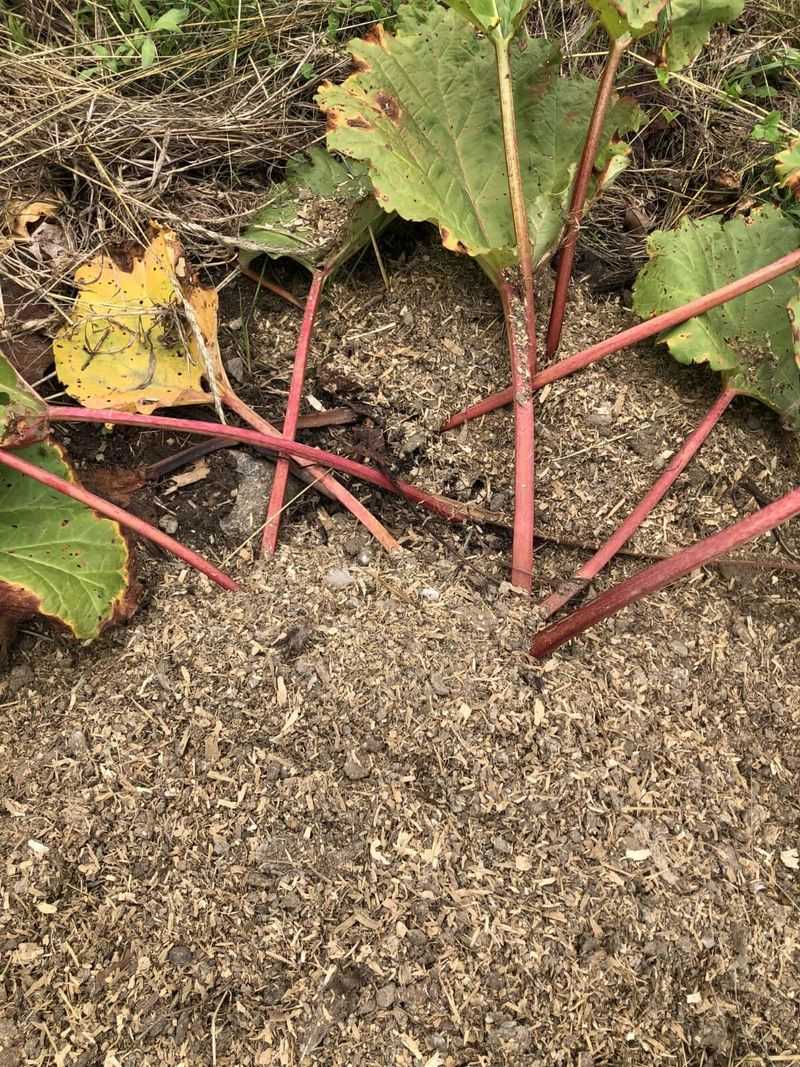
Chicken manure contains extremely high nitrogen levels – approximately four times stronger than cow manure. While this sounds like free fertilizer, too much concentrated chicken waste can actually burn plants and create toxic soil conditions.
The garden bed where my chickens frequently dust-bathed turned yellow within weeks despite being filled with healthy plants before. Fresh chicken manure requires proper composting for 6-12 months before becoming garden-safe, otherwise it can damage roots and stunt growth.
Create a dedicated composting system for chicken waste or use deep litter in the coop that can age properly before application. Never apply fresh droppings directly to growing plants – the nitrogen concentration will do more harm than good.
4. Dust Bath Destruction
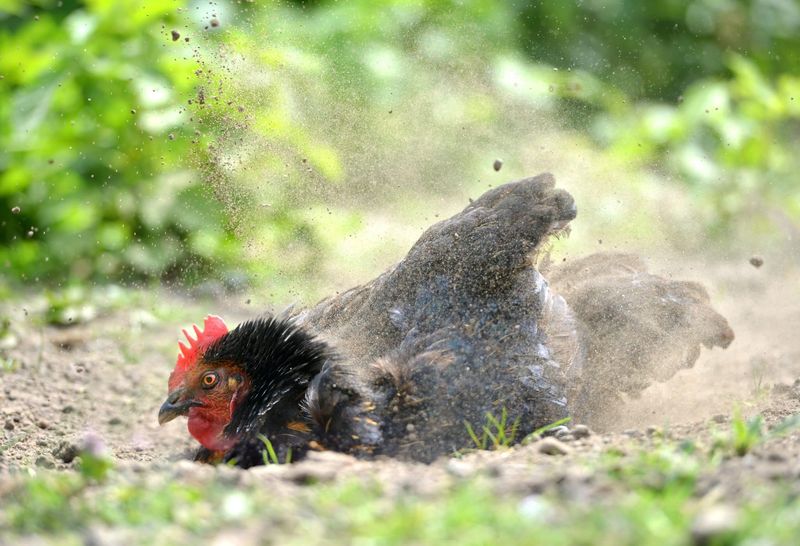
Chickens require regular dust baths to maintain feather health and control parasites. They’ll create bowl-shaped depressions in your yard, filling them with dirt, mulch, or whatever loose material they can find.
My carefully mulched perennial bed became their favorite bathing spot last summer. The chickens kicked material everywhere, exposed plant roots, and created permanent divots that collected rainwater in all the wrong places.
Save your landscaping by creating dedicated dust bath areas using large shallow containers filled with a mix of sand, wood ash, and diatomaceous earth. Place these in shaded areas away from your garden beds to encourage chickens to use them instead of your carefully prepared soil.
5. Parasite Problems
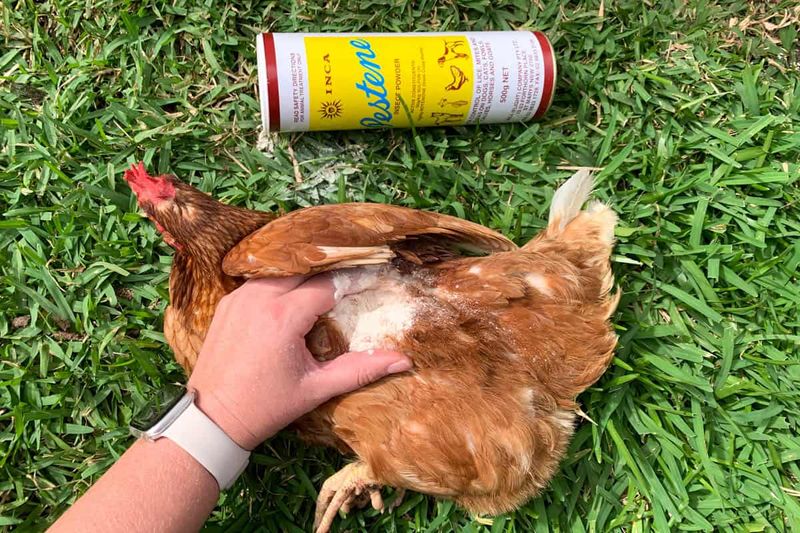
Chickens can harbor various external parasites like mites, lice, and ticks that may spread to other areas of your yard. These tiny invaders can multiply rapidly in warm weather, potentially affecting garden productivity and outdoor enjoyment.
We discovered red mites had moved from our coop into our nearby garden shed, infesting tools and supplies. Some chicken parasites can temporarily bite humans or pets, causing itchy welts similar to mosquito bites when you’re working in affected areas.
Regular coop cleaning, dust bath provisions with diatomaceous earth, and keeping chicken living areas separate from garden storage can minimize parasite spread. Inspect your flock regularly and treat promptly if you notice excessive scratching or feather loss.
6. Seed Consumption
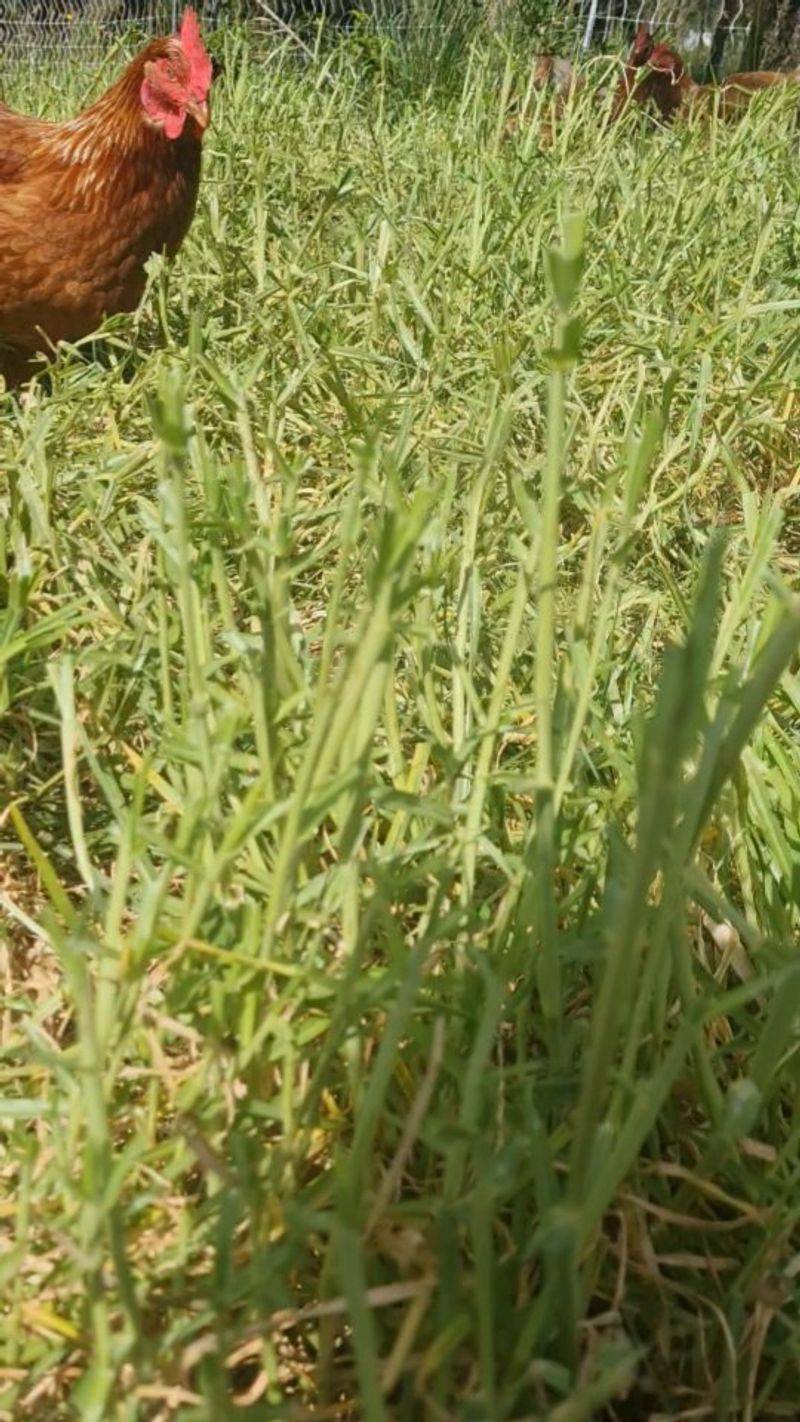
Chickens view freshly planted seeds as an all-you-can-eat buffet. Their excellent eyesight helps them spot even the smallest seeds you’ve just carefully sown, quickly undoing hours of garden planning.
Last spring, I replanted my carrot rows three times before finally covering them with row fabric. A chicken can consume hundreds of expensive specialty seeds in minutes, leaving nothing but tiny holes where your future harvest should be growing.
Use physical barriers like cloches, row covers, or temporary fencing around newly seeded areas until plants are established. Alternatively, start seeds indoors and transplant sturdier seedlings that can better withstand chicken curiosity.
7. Salmonella Risk
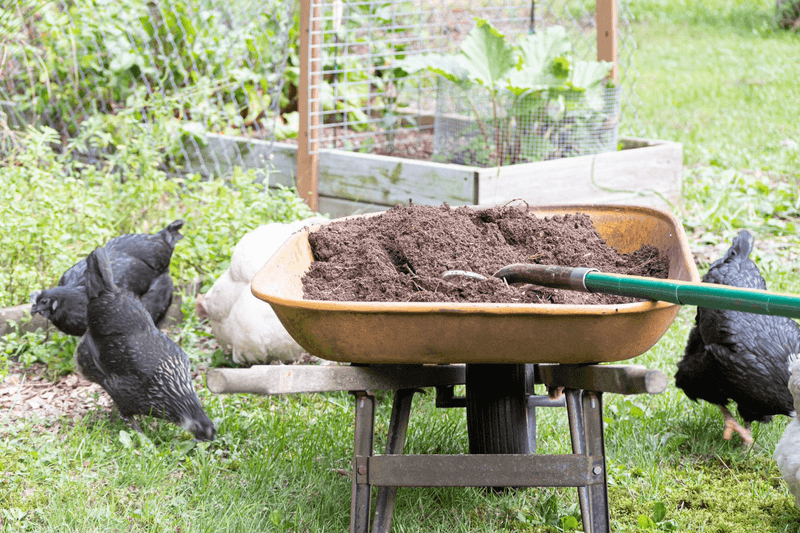
Chickens naturally carry Salmonella bacteria in their digestive systems without showing symptoms. The bacteria spreads through their droppings onto anything they touch – including your garden soil, tools, and produce.
Hand-washing becomes absolutely critical after garden work near chicken areas. We installed a dedicated handwashing station near our coop after my neighbor’s child got sick from helping collect vegetables from their chicken-accessible garden.
Keep chickens away from food production areas, especially during the harvest season. Always wash garden produce thoroughly, and consider dedicated shoes and tools for chicken areas versus garden areas to prevent cross-contamination.
8. Fruit And Vegetable Sampling
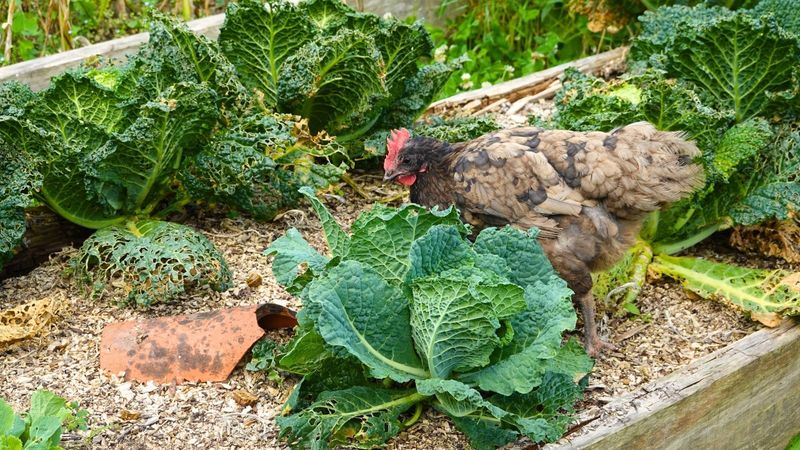
Chickens don’t wait for harvest time – they’ll peck holes in tomatoes, strawberries, and other produce as soon as they begin to ripen. Unlike some pests that consume entire fruits, chickens often take just one or two damaging pecks per item, ruining many pieces rather than completely eating a few.
The six beautiful Japanese eggplants I was saving for dinner became chicken snacks in under five minutes when I accidentally left the garden gate open. Their ability to jump surprisingly high means even staked tomatoes aren’t safe from curious beaks.
Protective netting, chicken wire cages around individual plants, or designated “chicken-proof” garden areas with proper fencing are essential for preserving your harvest from opportunistic pecking.
9. Noise Complaints
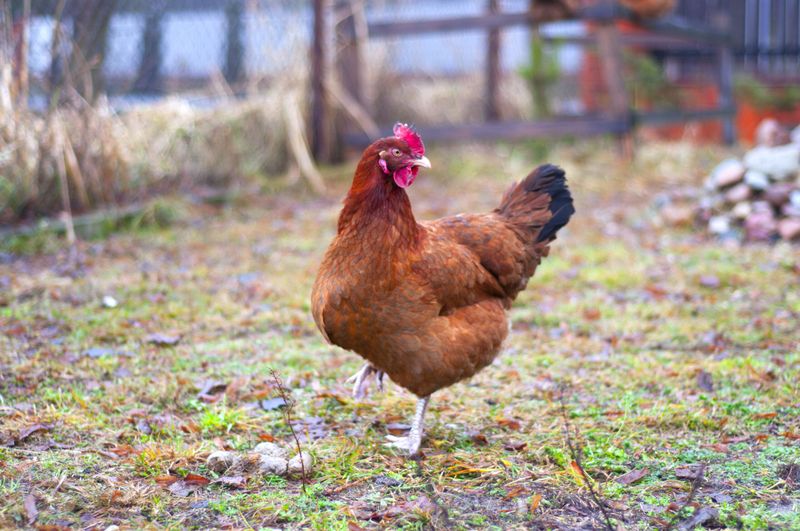
Contrary to popular belief, it’s not just roosters that make noise. Hens produce a variety of loud vocalizations, especially after laying eggs or when feeling threatened – sometimes reaching 70 decibels or more.
Our neighbor complained when our hens started their “egg songs” at 6am every morning, disrupting her weekend sleep. The constant clucking and squawking can strain neighborhood relationships, particularly in suburban areas with houses close together.
Position coops away from property lines, consider sound-dampening materials like straw bales around the coop, and check local ordinances before getting chickens. Some municipalities have specific noise regulations that apply to backyard flocks.
10. Flower Bed Devastation
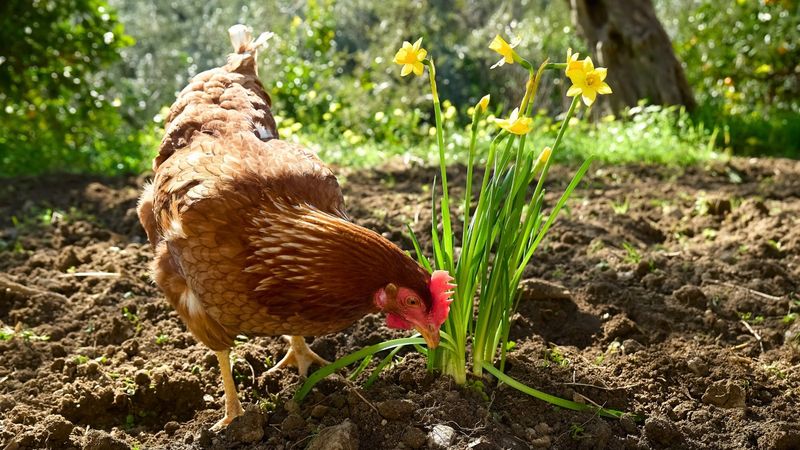
Chickens view your carefully planned flower beds as both restaurant and playground. They’ll eat tender blooms, dig up bulbs, and flatten delicate plants while dust bathing or scratching for bugs.
My prize dahlia collection became chicken salad in a single afternoon when a tree branch fell on our temporary fencing. Years of careful selection and cultivation disappeared in hours as they systematically worked through the bed, eating flowers and digging up tubers.
Protect ornamental plantings with permanent, secure fencing at least 4 feet high. For prized specimens, consider individual cages or plant in elevated containers that chickens can’t access.
11. Mulch Displacement
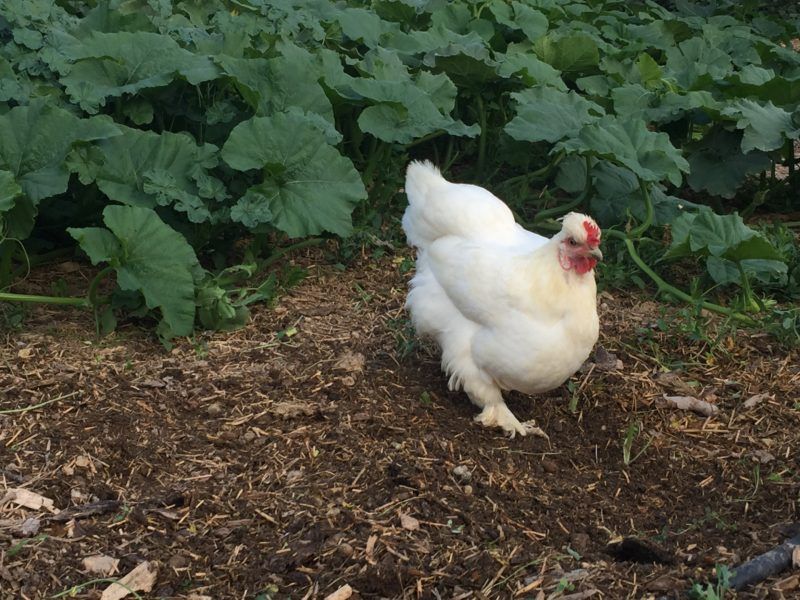
Hours spent carefully mulching garden beds can be undone in minutes by enthusiastic chicken scratching. Their powerful feet send mulch flying in all directions, exposing soil to erosion and weed growth while creating unsightly bare patches.
After spreading fresh cedar mulch around our shrubs last fall, I watched in dismay as our Buff Orpingtons redistributed it across the lawn within days. The exposed soil quickly dried out and developed cracks during a hot spell, stressing the plants.
Use heavier mulch materials like wood chips rather than lightweight straw or leaves in chicken-accessible areas. Alternatively, secure mulch with biodegradable netting or create physical barriers to protect freshly mulched areas until the material settles.
12. Respiratory Health Concerns
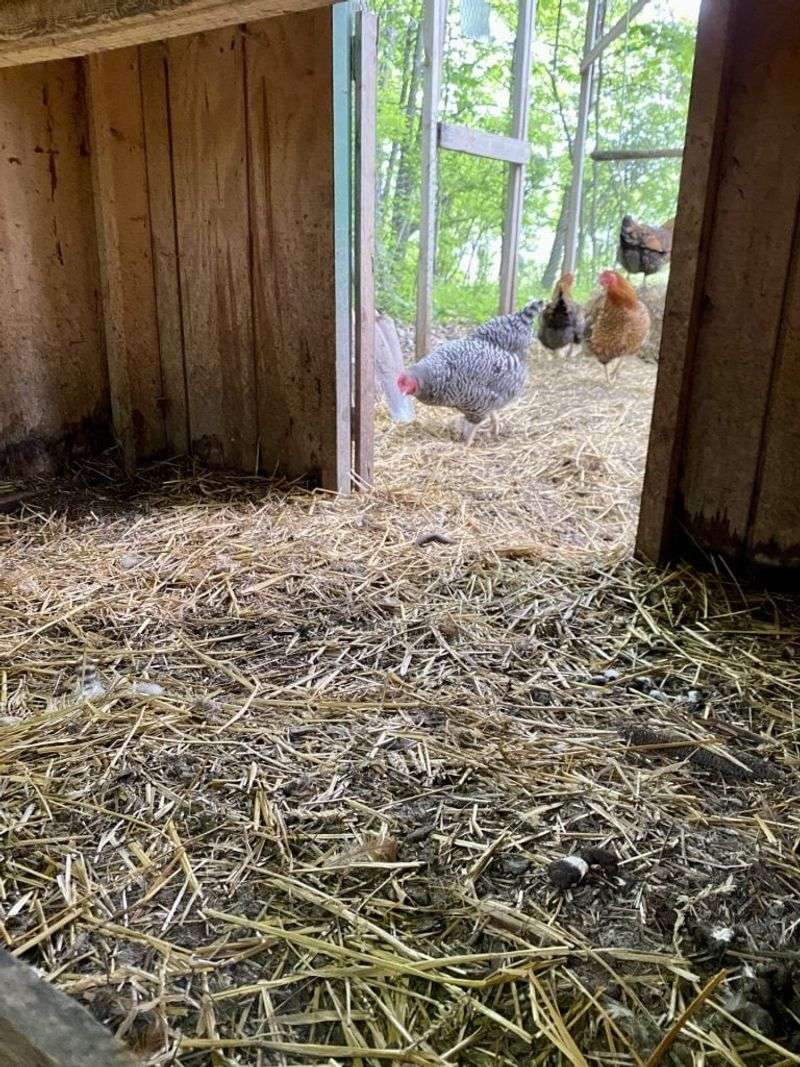
Chicken coops generate significant dust containing feather particles, dried manure, and bedding materials. This particulate matter can trigger or worsen respiratory conditions like asthma when coops are placed near homes or garden work areas.
My gardening buddy developed a persistent cough that improved when she relocated her coop farther from her garden. The fine dust from chicken activities contains ammonia and other irritants that can affect sensitive individuals even outdoors.
Wear a mask when cleaning coops or working in dusty chicken areas. Position coops downwind from your house and garden seating areas, and consider air filtering plants like lavender or rosemary near chicken zones to help capture airborne particles.
13. Irrigation System Damage
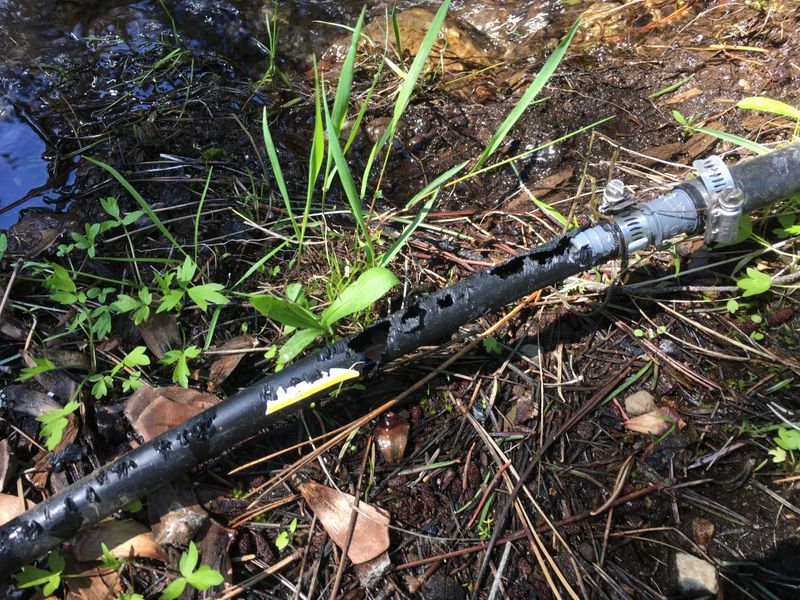
Chickens seem magnetically attracted to drip irrigation lines, soaker hoses, and sprinkler heads. They’ll peck at emitters out of curiosity, pull up exposed lines while scratching, and sometimes even use smaller components as toys.
We discovered multiple punctured drip lines after letting our chickens into the garden area for just one afternoon of pest control. The repairs took hours and required replacing several sections where they’d managed to pull connections apart completely.
Bury irrigation lines where possible or protect them with rocks or mulch. For above-ground systems, consider running lines inside protective tubing or scheduling chicken garden access only when you can supervise their activities.
14. Beneficial Insect Reduction
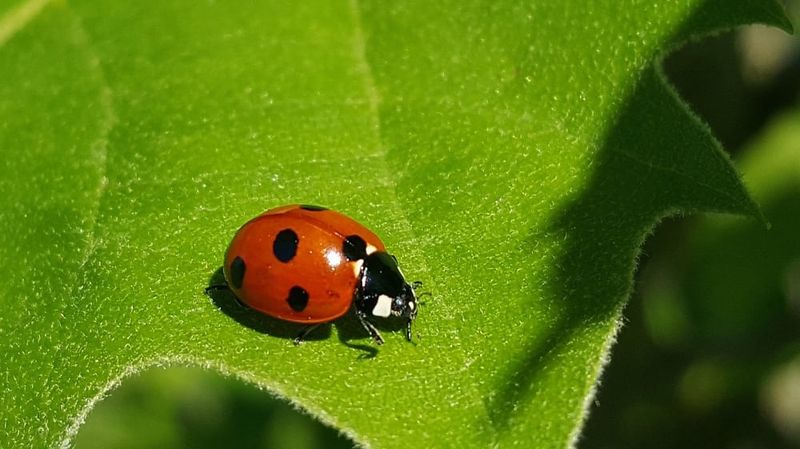
While chickens excel at pest control, they don’t discriminate between harmful and beneficial insects. They’ll happily devour earthworms, ladybugs, pollinators, and predatory insects that your garden depends on for natural balance.
After allowing our chickens regular access to our vegetable garden, we noticed significantly fewer butterflies and bees visiting our squash flowers. The following season, we had pollination issues that never occurred before the chickens arrived.
Create chicken-free zones where beneficial insects can thrive undisturbed. Consider rotating chicken access to different garden areas throughout the season rather than allowing constant foraging in the same space.
15. Soil Compaction Issues
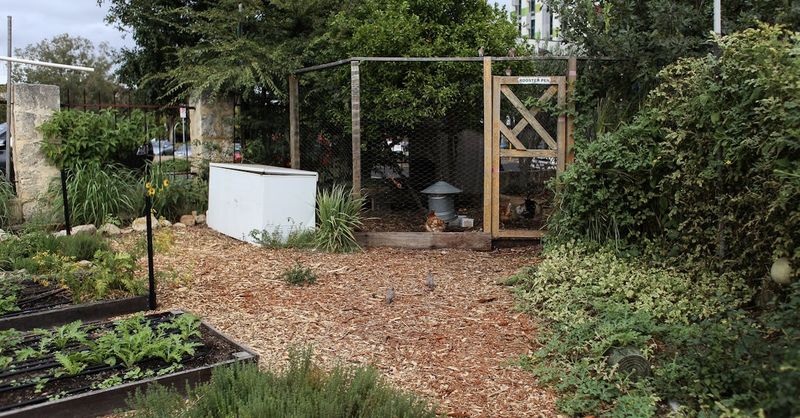
Chickens create well-worn paths through garden areas they frequently visit, compacting soil along these routes. Compacted soil restricts root growth, reduces water infiltration, and creates challenging growing conditions for nearby plants.
The area around our garden gate became so hardened from chicken traffic that water would pool there after rain instead of soaking in. Eventually, we had to remove the top layer of soil and amend it with compost to restore proper drainage.
Create designated pathways using stepping stones or wood chips to direct chicken movement through garden areas. Regularly aerate high-traffic zones and apply compost to counteract compaction effects on surrounding soil.
16. Unexpected Maintenance Costs
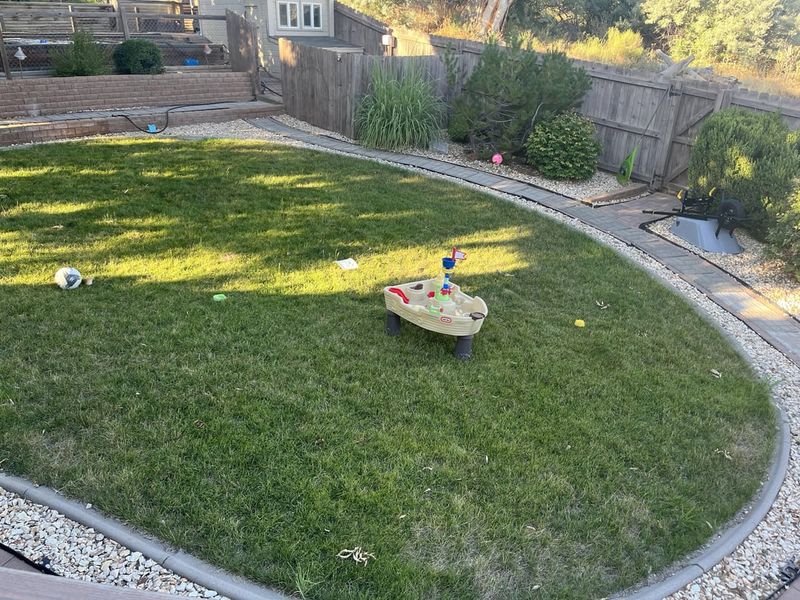
The financial impact of chicken-related garden repairs adds up quickly. From replacing damaged plants to repairing irrigation, fencing, and hardscape features, chickens can significantly increase your garden maintenance budget.
We spent over $300 last summer just replacing plants and repairing damage our small flock caused during occasional garden visits. That doesn’t include the time investment of replanting, reseeding, and restoring areas they disturbed.
Budget for chicken-proof infrastructure from the start rather than adding it reactively. Quality fencing, designated chicken zones, and proper garden protection systems cost more initially but save significantly compared to ongoing replacement and repair expenses.
17. Cross-Contamination Of Tools
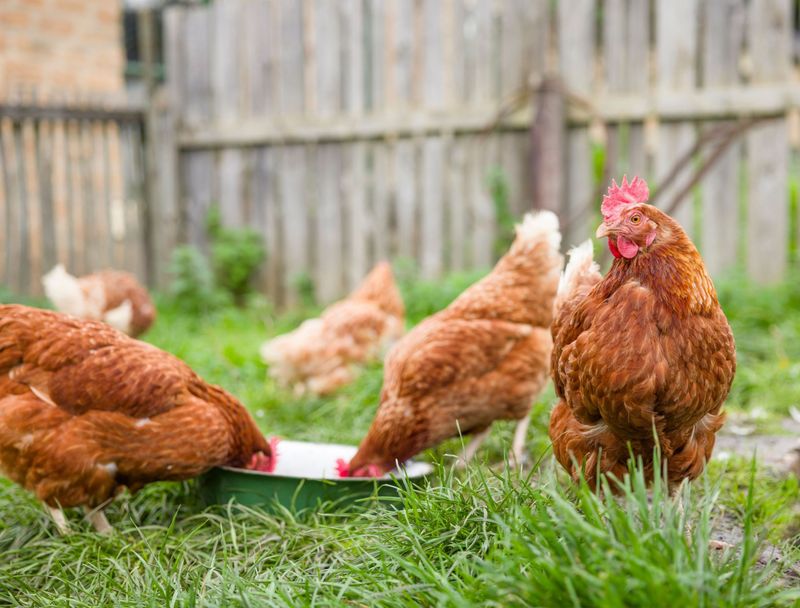
Garden tools used in chicken areas can transfer bacteria, parasites, and pathogens to your vegetable garden. Salmonella and E. coli can survive on tool surfaces for days, potentially contaminating produce during harvest or maintenance.
After using the same pruners in both areas, I developed a skin infection from a small cut received while harvesting tomatoes. The doctor explained it likely came from bacteria transferred from the chicken area to my garden tools.
Maintain separate tools for chicken areas and food gardens, or thoroughly disinfect shared tools between uses. A simple solution of one part bleach to nine parts water works well for sanitizing metal tools after chicken area exposure.
18. Compost Pile Disruption
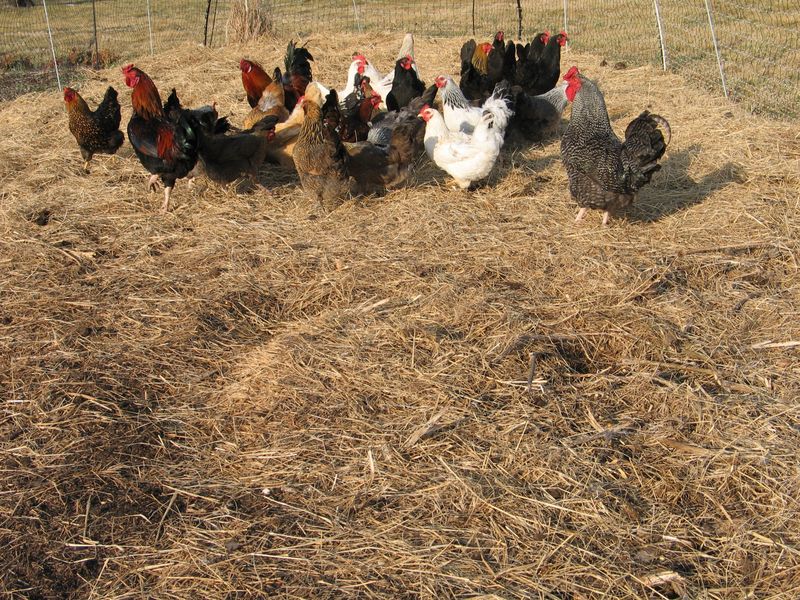
Chickens view compost piles as treasure troves of bugs, seeds, and decomposing treats. They’ll scatter materials everywhere, disrupt the decomposition process, and potentially introduce pathogens from their droppings.
Our carefully maintained compost system became a chicken playground within days of coop construction. They scattered partially decomposed materials across the yard and dug deep holes in the pile, throwing off the carbon-nitrogen balance we’d worked to maintain.
Enclose compost areas with chicken wire or use tumbling composters chickens can’t access. Alternatively, create a separate composting area specifically for chicken waste that can age properly before garden application.

